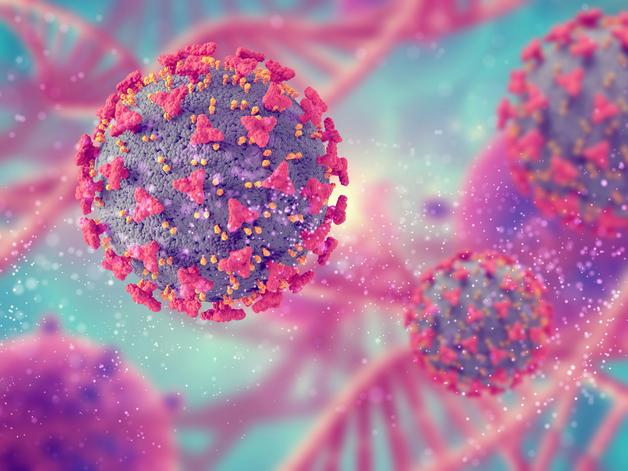The sudden grip of a headache during pregnancy—disruptive, pounding, entirely unpredictable—often sparks unease in anyone expecting a child. One day brings mild pressure across your temples, the next, a more forceful throbbing sets in while you’re just starting breakfast. For parents-to-be, questions naturally arise. Could this signal something more serious? Should rest be enough? If your routine is constantly interrupted, sleep seems impossible, and a dull ache won’t let up, frustration might follow. Understanding how headaches during pregnancy intertwine with hormonal shifts, fatigue, and stress can equip you to respond with both reassurance and practical action. Let’s unravel why these headaches happen, which signs require attention, and which science-backed self-care measures can truly help you regain comfort and peace of mind.
Understanding Headaches During Pregnancy: Types and Red Flags
You might be surprised to learn that headaches during pregnancy touch nearly 80% of expectant mothers, weaving an unpredictable pattern throughout each trimester. The most frequent culprit? Tension-type headaches. Picture a vice-like grip wrapping across your forehead or neck, often set off by fatigue, poor posture, or a restless night. While the discomfort rarely reaches dramatic heights, its persistence is enough to leave anyone drained by midday.
Then come migraines—intense, pounding, sometimes sending flashes of light dancing across your vision or bringing waves of nausea in their wake. While many find these migraines mellow as pregnancy progresses, some still face persistent attacks, especially if stress and sleep disruption persist. Cluster headaches, described as severe pain around one eye or the temple, are distinctly less common but cannot be ruled out entirely.
Vigilance pays off. Not all headaches during pregnancy are benign. Be watchful if any headache strikes suddenly and more severely than usual, refuses to budge after rest or acetaminophen, or comes hand-in-hand with blurred vision, swelling in your face, or elevated blood pressure. These may point towards preeclampsia—a condition requiring prompt medical assessment.
Causes of Headaches During Pregnancy: Unraveling the Triggers
Why do headaches during pregnancy appear out of nowhere? Hormonal turbulence leads the parade, especially as estrogen and progesterone levels rise sharply and dilate or constrict the brain’s blood vessels. Add surges in blood volume, and you’re left with vulnerable vascular networks—an invitation for pain.
But the story rarely ends with hormones. Dehydration (often amplified by morning sickness), drops in blood sugar between meals, caffeine withdrawal, and shifting posture as the pregnancy progresses all play significant roles. Emotional stress, inadequate sleep, and loud environments can also flame the embers of a headache.
Listing typical offenders for parents to watch:
- Dehydration: unnoticed, particularly if nausea is a routine morning symptom
- Low blood sugar: missed or delayed meals destabilize energy levels
- Physical tension: slouching at a desk or sleeping awkwardly
- Sensory overload: bright light, strong odors, overwhelming noise
- Emotional factors: anxiety, racing thoughts, or fragmented sleep
Rising blood pressure after the 20-week mark deserves distinct attention—pair it with swelling or protein in urine and urgent assessment becomes non-negotiable.
Headaches and Pregnancy by Trimester: What Shifts When
First trimester: Expect a genuine uptick in headaches during pregnancy. Hormone surges, morning sickness, extra blood circulating, caffeine restriction—everything conspires to make the early months turbulent, with tension or sinus-type pain at the forefront.
Second trimester: As hormones reach a steadier rhythm, some women find tension headaches ease or disappear altogether. Nevertheless, migraines can linger and stress remains a potent trigger.
Third trimester: Headaches may not visit as often, but risk increases for hypertensive disorders—particularly preeclampsia. If a headache strikes, especially alongside vision changes or swelling, immediate attention is needed.
When to Seek Medical Advice: Knowing the Warning Signs
It’s natural to wonder, “Should I worry about this one?” Most headaches during pregnancy remain mild and respond to classic remedies—quiet, hydration, or acetaminophen. Yet, certain symptoms merit immediate contact with your healthcare provider:
- The “worst ever” headache striking out of nowhere
- Blurred or altered vision, seeing spots or flashes
- Persistent vomiting
- Noticeable swelling in the face or hands
- Ongoing fever
- Heightened confusion, drowsiness, or mental fog
- High blood pressure readings
- Severe pain paired with discomfort high in your abdomen
Early and thorough evaluation—checking blood pressure, neurological function, and urinalysis for protein—can prevent complications before they escalate.
Risks for Parent and Baby: Distinguishing Benign From Concerning
The reassurance: Most headaches during pregnancy—tension-driven or migraine—do not harm the developing baby and resolve with time, rest, and gentle remedies. However, pain that is persistent or severe, particularly when blood pressure soars or neurological symptoms emerge, can signal vascular conditions such as preeclampsia, stroke risk, or placental disruption.
These complications may reduce blood flow to the placenta, increasing the chances of restricted growth or, in rare cases, premature birth or fetal loss. Swift recognition and medical oversight improve outcomes for both parent and child. Vigilance is a friend, not cause for undue alarm.
Safe Diagnosis: Medical Evaluation Without Risks
Your story guides the medical evaluation. Describing exactly when headaches during pregnancy occur, what sets them off, and how they feel is far more helpful than most realize. Blood pressure readings, urinalysis (confirming or excluding protein leaks), and a quick assessment of neurological function form the backbone of safe diagnosis.
When imaging becomes necessary, an MRI (which uses magnetic fields instead of radiation) is safest. Maintaining a headache diary—tracking triggers, timing, and severity—empowers both you and your provider to spot patterns early.
Evidence-Based Relief: Practical Tips and Medical Guidance
Non-drug strategies should always take center stage:
- Resting in a cool, dark room relieves many tension-type headaches.
- Applying a cold compress to the forehead or a warm pack to the back of the neck targets muscle spasm and swelling.
- Massaging temples or the base of the skull can disrupt persistent discomfort.
- Hydration matters: aim for at least 1.5 to 2 liters per day, even if thirst is subtle.
- Eating regular, balanced meals smooths fluctuations in blood sugar.
- A steady sleep schedule and gentle exercise (walking, swimming, prenatal yoga) reduce stress response and muscular tension.
- Relaxation techniques—guided breathing, meditation, or mindfulness—support both physical and emotional health.
Natural options such as herbal teas (lemon balm) or cooled chamomile hydrosol across the forehead may offer mild relief, but always confer with your healthcare team for approval. Professional acupuncture, practiced within safety guidelines, is another avenue explored by some for persistent headaches.
A cautionary note: Avoid all essential oils, whether applied, inhaled, or taken by mouth—they remain unsafe throughout pregnancy.
Medication: What’s Safe, What’s Not
Here’s a fact every parent should know: acetaminophen (also known as paracetamol) is the only non-prescription pain reliever recognized as safe for self-treatment during pregnancy. Stay under 4g per day, spaced evenly, and avoid consistent, extended use.
NSAIDs (nonsteroidal anti-inflammatory drugs) like ibuprofen or aspirin are advised against—especially from the second trimester on—because of demonstrated risks to the baby’s heart and kidneys.
In rare circumstances, prescription medications for debilitating migraines may be considered—but always under strict professional supervision. Never introduce a new medication, supplement, or herbal product without consulting your provider.
Prevention: Routines That Make a Difference
Consistency shines in prevention. Small daily choices reduce both how frequently headaches during pregnancy strike and how intense they become.
- Eat regular, balanced meals to curb low blood sugar.
- Stay hydrated, even if you’re not thirsty.
- Taper caffeine intake slowly, aiming for under 200mg per day.
- Prioritize restful sleep and stick to set bedtimes.
- Identify and avoid known triggers—foods, odors, lighting—as much as possible.
- Embrace physical activity appropriate for your energy and ability.
- Practice daily relaxation techniques; mindful breathing and prenatal yoga offer double benefits.
- Adjust posture with cushions or ergonomic changes, particularly at work or when relaxing.
- Consider logging headaches and triggers through a smartphone app for future appointments—providers often spot trends you might miss.
Headaches After Childbirth: What to Watch For
Even after delivery, headaches persist for many new parents—a cocktail of hormone fluctuations, cumulative fatigue, unpredictable sleep, and, for some, dehydration linked to breastfeeding. Reassuringly, most postpartum headaches resolve with rest, fluids, and acetaminophen (with ibuprofen considered safe as well, especially if breastfeeding, provided your provider gives the all-clear).
Certain headaches demand more urgency: those following epidural anesthesia (especially if pain worsens standing up), headaches with vision changes or neurological symptoms, or new swelling can indicate complications like postpartum preeclampsia. Prompt assessment in these cases is non-negotiable.
Key Takeaways
- Headaches during pregnancy are remarkably common—most fade with hydration, balanced nourishment, and practical self-care, but sustained vigilance helps catch rare complications.
- Watch for red flag symptoms: sudden intensity, visual changes, persistent vomiting, swelling, fever, mental confusion, or elevated blood pressure.
- Share detailed headache diaries with your healthcare provider to enable personalized support and early recognition of concerning trends.
- Acetaminophen stands as the sole medication for self-management—never experiment with other over-the-counter or alternative remedies without medical advice.
- Lifestyle adjustments—hydration, nutrition, rest, gentle movement, and emotional replenishment—remain the bedrock of both relief and prevention.
- If uncertainty lingers, contacting a trusted professional provides swift reassurance.
- For ongoing guidance, tailored health tips, and pediatric support, consider downloading the Heloa app: a resource for personalized advice and free child health questionnaires.
Knowledge, self-compassion, and trusted guidance can make the journey through pregnancy—and beyond—safer, smoother, and just a little more serene.
Questions Parents Ask
Can pregnancy headaches affect my daily activities or work?
Absolutely, headaches experienced during pregnancy can sometimes make it challenging to keep up with daily routines or professional obligations. Fatigue, difficulty concentrating, and heightened sensitivity to noise or light may occasionally disrupt your comfort or productivity. Try to give yourself permission to take short breaks, rest in a quiet space, or use relaxation techniques—these little pauses can make a real difference. If headaches begin to interfere significantly with your ability to function or enjoy daily activities, do not hesitate to discuss supportive measures with your healthcare provider. Remember, it’s perfectly normal to prioritize your well-being during this period.
Are sinus headaches common in early pregnancy?
Yes, sinus headaches are quite usual during the first trimester. Hormonal changes can cause nasal congestion and a runny nose, leading to discomfort or pressure around the forehead and cheeks for some parents-to-be. Simple steps—like using a humidifier, staying well-hydrated, or gently rinsing the nose with saline solution—might provide gentle relief. If discomfort persists or you experience a fever, always seek advice from your healthcare professional to find solutions best suited to you.
How can I manage work stress if I’m prone to headaches during pregnancy?
Managing stress at work takes on a special importance when you’re experiencing pregnancy headaches. Whenever possible, try to incorporate moments of calm into your schedule—brief breathing exercises, stretching at your desk, or even stepping outside for a few minutes can ease tension and reduce the likelihood of headaches. Keeping a regular routine for hydration and meals, as well as communicating openly with your employer about your needs, may also offer some comfort. And above all, remember: prioritizing your own health is an act of care for both you and your baby.










